Industry News
UK’s second largest retailer will store golden delicious apples under the Italian Alps as alternative to high-energy storage system
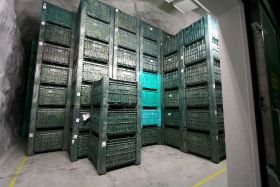
Asda has announced it will store up to 50,000 golden delicious apples in caves under the Italian Alps to reduce its carbon footprint.
The initiative, a world-first for a retailer, is in partnership with Italian apple supplier Melinda.
It aims to save 60% of electricity needed to store the same quantity in a refrigerated warehouse, and is designed to reduce water consumption, land use and decrease C02 emissions.
The cave space in Val di Non, in the Trentino region of northern Italy, is located around 800 metres into the mountain. Each of the five storage spaces are around 144 by 60 metres, comparable to the size of two Boeing 747 aeroplanes.
“This is a really exciting project which we’ve been working on for over two years,” said IPL category manager Martin Smith. “The first time I visited the mountain site it was a completely unique and unforgettable experience, and it’s really exciting to know that our shoppers have the chance to enjoy apples with such an innovative story.”
The project is due for completion in 2019.
Announcement of Sir Ian Gibson’s intention to step down follows a loss-making year for the retailer

Morrisons chairman Sir Ian Gibson has announced that he will stand down at next year’s annual general meeting.
The news came ahead of today (5 June)’s AGM which follows a loss-making year in 2013.
A spokesperson for the retailer said it would conduct “an orderly process” to find a successor and further announcements will follow soon.
Gibson said: “This term will take me into my eighth year on the Morrisons board, and this announcement gives the board time to conduct an orderly search for a new chairman and ensure a smooth transition.”
Gibson, who joined the company as non-executive deputy chairman in September 2007, was appointed chairman following the retirement of Sir Ken Morrison in March 2008.
Last month, Morrisons revealed details of its new £1 billion price cutting campaign, launched after the group recorded a loss of £176 million in the year to February 2, 2014, after a profit of £879 million the year before.
New Zealand fruit export and logistics corporation set to release new and existing shares to investors by mid-July
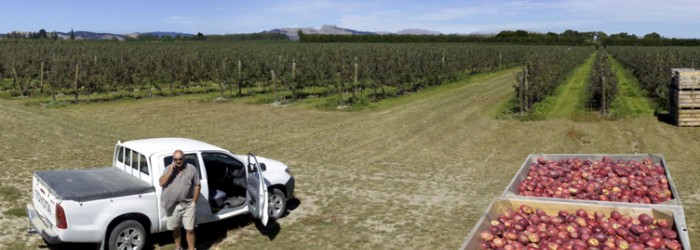
Scales Corp, the fruit and vegetables logistics group which owns New Zealand’s largest apple exporter Mr Apple, has announced it is considering listing on the New Zealand stock exchange.
In a statement, the group said it would publish a prospectus by mid-June and that shares were expected to appear on the exchange’s main board by the middle of July.
New shares will be issued by the company while its majority shareholder, the private equity firm Direct Capital, which owns 84 per cent of Scales through its Direct Capital IV and Pohutukawa II funds, will sell down some of its shareholding alongside co-investors ACC and the New Zealand Superannuation Fund.
Scales recently posted an annual profit of NZ$20.4m for 2013, 50 per cent up on the previous year’s result, buoyed by strong prices for Mr Apple’s apple exports on the back of increased demand in Asia.
The group also owns and operates airfreight service Balance Cargo, ocean freight service provider Scales Logistics, coldstorage operators Polarcold Stores and Whakatu Coldstores and fruit juice concentrate business Pro Fruit.
Calls for new watchdog to collectively monitor public sector food amid fears that UK ‘is not ready’ to offer free school meals
Suppliers to the public sector could benefit from calls to collectively monitor nutrition and catering across the wider public procurement sector, including hospitals, prisons and schools.
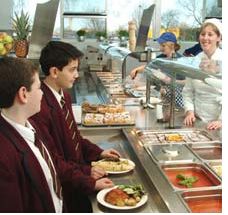
Nutritionists and school food campaigners yesterday called for a new watchdog for all public sector food. They met at a forum to discuss implementation of the School Food Plan, which will give schoolchildren aged between five and seven free school lunches, as of 1 September 2014.
Many voiced concerns about the short timeframe to put the new Plan in place, as some schools may struggle with the funding and equipment to provide free school meals before the start of the new term.
Lindsay Graham, school food and health advisor, suggested a better media campaign, an official public health statement and a separate body to monitor public food would make the step easier.
She said this new regulatory body should monitor public sector food, starting with schools, but also incorporating other areas to improve nutrition education and tackle obesity on a wider scale.
Alison Nelson, commissioning manager of the Food for Life Partnership, run by the Soil Association, said the Food for Life Catering Mark is now looking to work with other settings of public food to influence work places in the way they use and prepare food. “This is how to get real systems change. We must get all public procurement sectors in a local authority involved to then drive real change.”
Nelson also emphasised how the Catering Mark, which provides a database to link schools with local suppliers for seasonal or organic produce, boosts the local economy. She said: “For every £1 that goes into a menu, £3 goes back into the local economy.”
Co-ordinator for the Children’s Food Campaign, part of the sustainable farming group Sustain, Malcolm Clark, said public procurement should be about bringing together different strands of healthy eating. “We would like to see a separate body for public sector procurement,” he said.
The new School Food Plan will also ensure cooking and food nutrition is a compulsory part of the national curriculum. However, this was met with concerns that it would only be loosely followed, and could be sacrificed for more ‘academic’ subjects at a head teacher’s discretion.
Many of those quizzed were unaware that they can buy British strawberries in the summer months, and homegrown Brussels sprouts in December.
When it comes to eating ‘in season’, British consumers have little idea when they can buy UK-grown fruit and vegetables, a new survey has revealed.
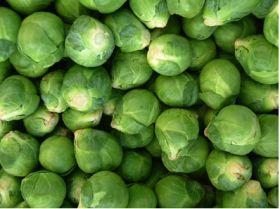
The survey, carried out by LEAF (Linking Environment and Farming) ahead of this weekend’s Open Farm Sunday event, also found that many consumers didn’t know that British farmers grow foods such as blueberries (63%), sweetcorn (62%), iceberg lettuce (37%), cauliflower (29%), carrots (21%), aubergines (19%), or even apples (19%).
And, despite the fruit’s strong association with Wimbledon, less than six in ten adults knew that they can buy British strawberries in the summer. Some 5,000ha of British strawberries are grown commercially each year, yet one in five people questioned by LEAF didn’t realise that UK farmers grew them at all.
While the exact start date of the season varies depending on the weather, the fact that the British asparagus season runs from April until June has also passed many consumers by, if the LEAF survey is anything to go by.
Only one in three people questioned knew when they could buy British asparagus, with one in ten thinking they could buy it all year round.
Winter produce fared no better, with nearly half of consumers (46 per cent) unaware that in December, you can buy British-produced Brussels sprouts.
It also appears that things are getting worse, with the research showing that those born in the 1990s have significantly less knowledge than previous generations.
LEAF’s survey found that if you were born in the 1990s rather than the 1950s, you were:
· 1.5 times less likely to know British farmers grew strawberries;
· 2.5 times less likely to know you could buy British Brussels sprouts in December;
· Three times less likely to know when to buy British asparagus;
· Twice as likely to not know that iceberg lettuce is grown on British farms;
· And 2.5 times less likely to know you can buy homegrown red cabbage (30% compared with 74%)
Many adults born in the 1990s also thought that Britain commercially grows oranges (16%), bananas (8%), and kiwi fruits and mangoes (both 5%).
Meanwhile, large numbers did not know that the UK grows cauliflower (55%), apples (35%) or carrots (39%).
And, only four in ten of those questioned understood that buying seasonally supported British farmers.
Annabel Shackleton, LEAF’s Open Farm Sunday manager, said: “Alarmingly there appears to be a decline in knowledge about what UK farmers grow and when to buy homegrown produce. A number of initiatives are being run in schools to help improve children’s knowledge but it seems adults could do with some lessons too.
“One in ten people questioned admitted to having been left embarrassed by asking for something that wasn’t in season, but much greater numbers than that have a problem understanding seasonality. The agricultural industry is worth billions to the British economy, so it is important that we know what homegrown produce to look out for when shopping.
“Talking to a farmer is a great way to discover more about your food, so we’d encourage as many people as possible to visit their local farm on Open Farm Sunday, 8 June, where nearly 400 farms of all types and sizes will be opening their gates for visitors to celebrate British farming and food.”
LEAF is an organisation dedicated to delivering more sustainable food and farming, and has run Open Farm Sunday since 2006.
Its survey of 2,000 adults was carried out by One Poll during May 2014.
European potato stocks reportedly at their lowest level in decades, while Belgium reports record production

Potato supplies into Europe, Russia and Ukraine are reportedly running at their lowest level for decades, with domestic production delayed by cold, wet weather and suppliers in traditional spring sources Egypt and Israel reporting lower-than-usual stocks for the time of year.
According to Christoph Hambloch of analyst AMI, problems with the quality and availability of early potatoes in Spain, Italy, Belgium and Germany have complicated matters and depressed overall profitability in the sector, notably as a result of moisture-related disease.
Meanwhile, market prices are said to be rocketing, topping €70 per tonne compared with €50 per tonne at the same time last year.
“The current price trend has been turned on its head,” Hambloch wrote. “Normally prices start to go down at this time of year, but now they are climbing higher and higher.”
In Belgium, local reports suggest potato production area in the region of Wallonia has increased 8.6% this year to 35,535ha, contributing to an overall rise in production to 81,165ha – a new record for the country.
The Northern Ireland Soft Fruit Growers Association (NISFGA) will represent the needs and interests of members
Northern Ireland’s first-ever soft fruit association has been formed.
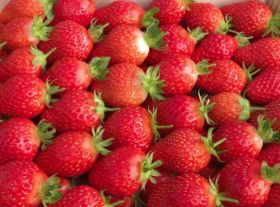
The Northern Ireland Soft Fruit Growers Association (NISFGA) will represent the needs and interests of members, as well as helping growers develop and improve their operations.
The Northern Irish soft fruit sector’s output is currently valued at £700,000 per annum, which, although small in comparison to the apple-dominated top fruit sector, shows the category’s burgeoning potential.
NISFGA plans to promote a Love Local campaign and offer a range of services to members.
The association is currently in consultation with growers and government officials to determine the needs of the sector and how it can be supported.
NISFGA came about from a project supported by the Supply Chain Development Programme, where six growers met regularly to share information and advice.
Soft fruit production in Northern Ireland is dominated by strawberries (184 tonnes), followed by raspberries (19.9 tonnes) and gooseberries (9 tonnes).
Sector saw turnover rise and created more jobs last year in spite of economic downturn
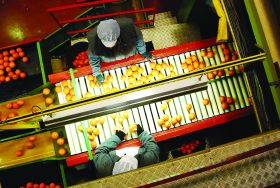
Spain’s agrifood cooperatives have weathered one of the most challenging economic periods in the country’s history, posting an 8% increase in turnover in 2013. According to data from the Observatory of Agrifood Cooperatives (OSCAE) presented during the general assembly of Cooperativas Agro-alimentarias (Spanish Agrifood Cooperatives) turnover rose from €23.82bn to €25.69bn in the past year.
The cooperative grouping, which represents Spain’s 3,844 cooperatives working in the agrifood sector, cited stronger prices across some of the country’s main agricultural products, including fruits and vegetables, olive oil, olives and wines, as the main reason for the improved results.
The data shows that the cooperative sector increased its presence on international markets and now account for 27% of Spain’s total export turnover in the food industry.
The number of workers employed by its members went over by 8.25% in the five years between 2007 and 2012, proving the important role the sector plays in job creation and growth, the group said.
Cooperativas Agro-alimentarias held its general assembly in Madrid last week, during which Angel Villafranca was elected as the group’s new president. Villafranca, who also heads up the Agrifood Cooperatives of Castilla-La Mancha, replaces Fernando Marcén, former president of the Agrifood Cooperatives of Aragon.
Villafranca said the new presidency would continue “with the policy of effort and integration of our food companies, carried out by Fernando Marcén with unmistakable success and by organisational expertise of the entire professional team.”
Among the objectives set out by the new presidency, Villafranca said the focus would be on further consolidation and integration in the coming years. He said Spain’s agricultural production outside the cooperatives could not continue in their present disorganised and atomised state, and called for “an urgent restructuring process that allows us to minimise the effects of increasing external competition and highly concentrated customers, maximising the benefits from the internationalisation process, particularly in emerging markets”.
UK’s largest retailer announces completion of ‘milestone’ deal with Chinese firm CRE, creating China’s biggest food retailer
Tesco has completed a joint venture with Chinese retailer China Resources Enterprise (CRE) to create the largest food retailer in China.
Tesco will own 20% of the chain and CRE will own 80%, according to the BBC.
The move, first announced in October 2013, will join Tesco’s existing outlets in the country with CRE’s stores, known as Vanguard.
“We’re very pleased to have completed this historic agreement. The partnership creates a strong platform in one of the world’s largest markets,” said Tesco CEO, Philip Clarke. “We can now combine our strengths to build a profitable multichannel business, offering our customers in China the best of modern retail.”
Hong Jie, CEO of CRE, said the venture is a “major milestone” for CRE’s business development. “We believe that this partnership is one that combines the strength of both parties and enables the JV to become the leading multi-format retailer in Greater China, through improved operations, better growth and enhanced profitability,” he said.
Last month, Clarke confirmed the UK’s largest retailer is committed to pursuing “disciplined” international growth in light of falling annual group profits for the second year in a row.
He said the group would reduce its investment in Europe and focus on its high-returning markets in Asia, namely Korea, Malaysia and Thailand, as well as new ventures in China and India.
In April, Tesco reported a 6% fall in group trading annual profit to £3.3bn and a drop in like-for-like sales by 1.4%.
Group trading profit was also down 5.6% in Asia to £692 m.